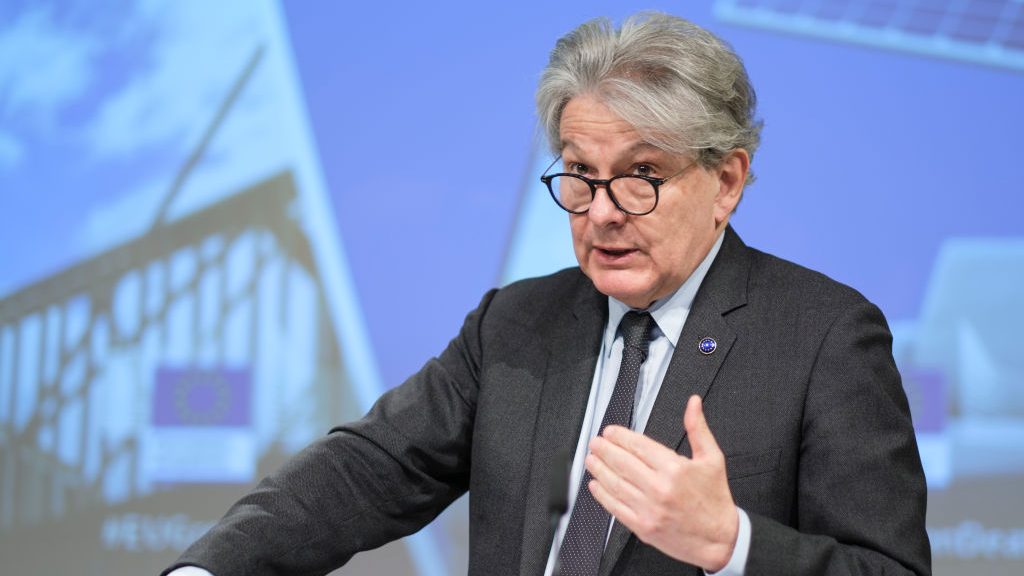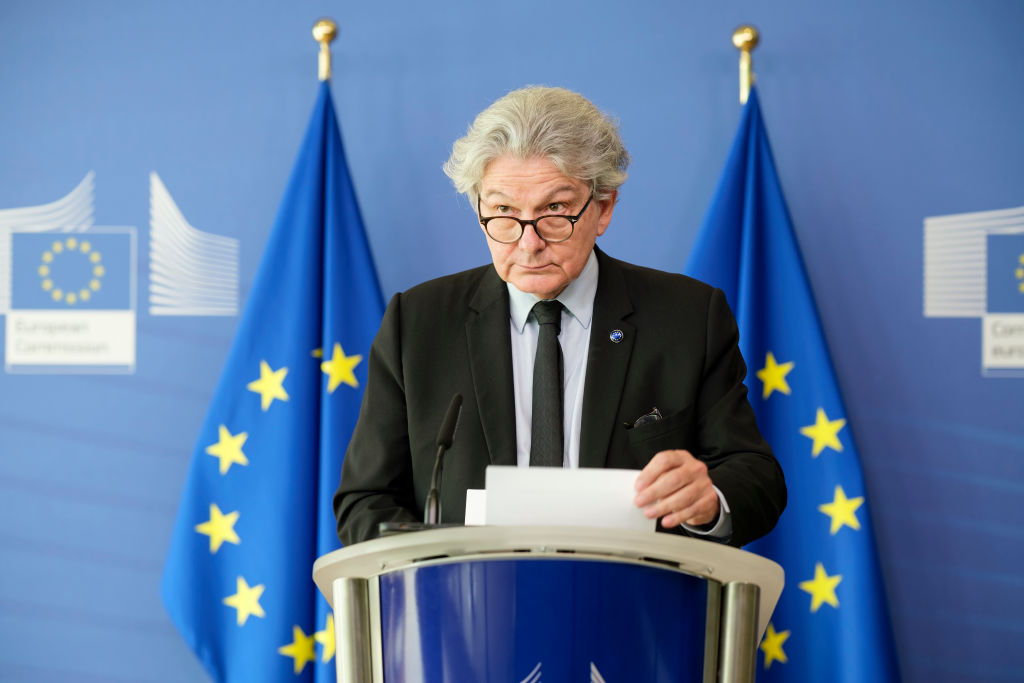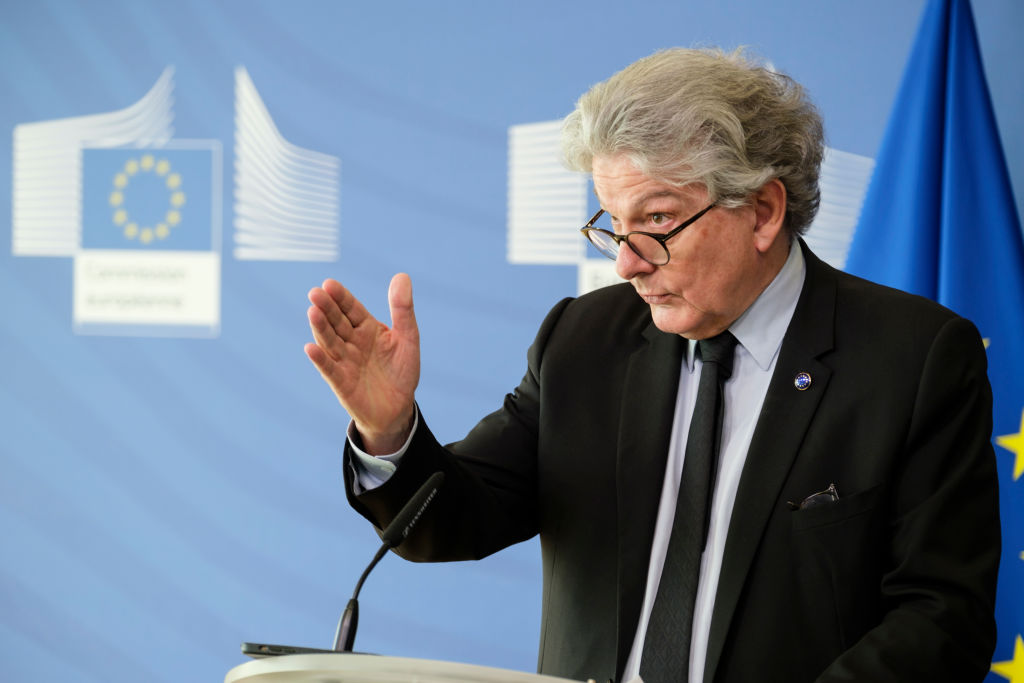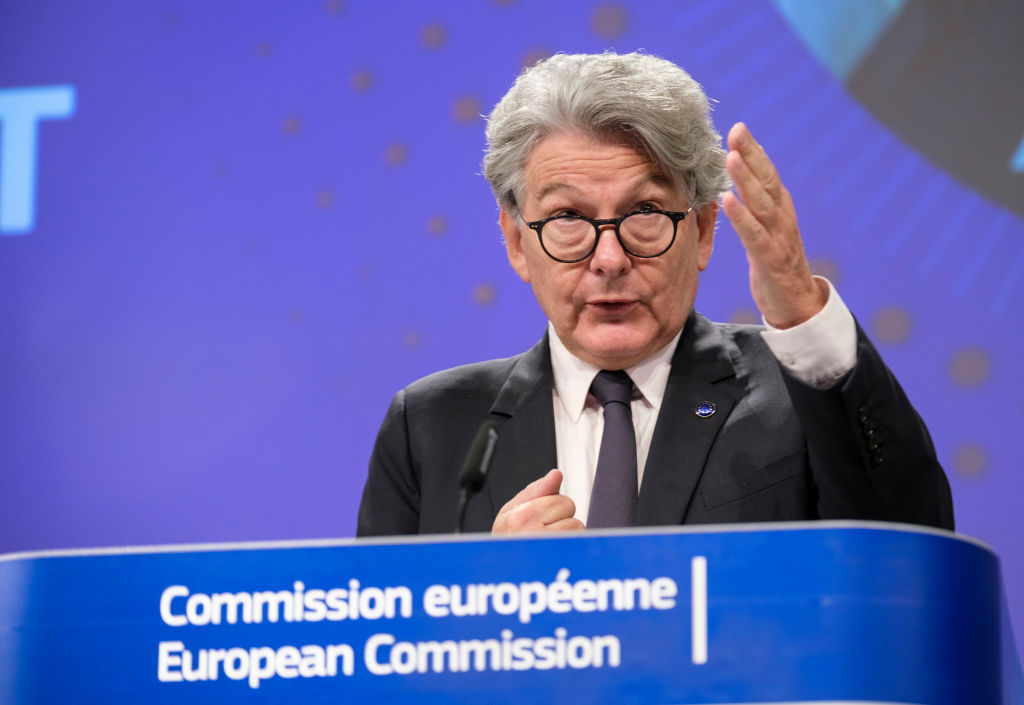The Europe Union’s Digital Services Act (DSA) will help protect children from pornography, according to EU internal market commissioner Thierry Breton.
Breton emphasised that major social media services such as Twitter (now X) and TikTok will be forced to gather detailed information about their users in order to learn how to best protect them from “dangerous content”.
“The Digital Services Act obliges the providers of very large online platforms to consider how children can be exposed through their service to content that may impair their physical, mental and moral development,” Breton wrote in a response to a parliamentary question.
He added that such platforms will soon be forced to “adopt proportionate mitigating measures” such as built-in age-verification systems aimed at preventing children from accessing porn.
Breton also said that the European Commission was working on the development of an age-verification “toolkit” for social media companies and that it would “facilitate a comprehensive EU code of conduct on age-appropriate design”.
Efforts to censor the internet in Europe must be left to the European Union and its Digital Services Act, the European Commission has told France. https://t.co/C6RmyA6Swa
— Brussels Signal (@brusselssignal) August 3, 2023
His comments came in response to a parliamentary question on the dangers pornography poses to children.
Breton ignored one part of the question about what steps individual EU Member States should take to “better control minors’ access to websites that offer” pornography.
In previous statements he has made, he insisted that online censorship was a matter for Brussels alone and that national governments should avoid trying to do it themselves or face EC repercussions.
“Member States should refrain from adopting national laws that would overlap with [DSA] regulations or create stricter or more detailed provisions in the concerned regulatory fields,” Breton previously warned France.
The EU’s advocacy for tighter age-verification systems online is likely to unsettle digital privacy advocates, with various similar systems either proposed or put in place outside of bloc resulting in significant backlash from campaigners.
“We don’t know how these systems work. Is our data being stored? Who has access to it? If so, are they processing it?” Dr Monica Horten, a policy manager at the UK-based NGO Open Rights Group said regarding similar regulations that are being considered in Britain.
Others have expressed fears about age-verification systems that utilise facial ID technologies.
“Collecting biometric data of this scale inherently puts people’s privacy at risk,” another UK NGO, Big Brother Watch, warned, with the possibility that such data could be stolen by hackers being a particular cause for concern.
Free-speech defenders have warned against a rumoured bid by the European Union’s top online censorship advocate to become European Commission President in 2024. https://t.co/W6Dikm5D8z
— Brussels Signal (@brusselssignal) August 2, 2023





